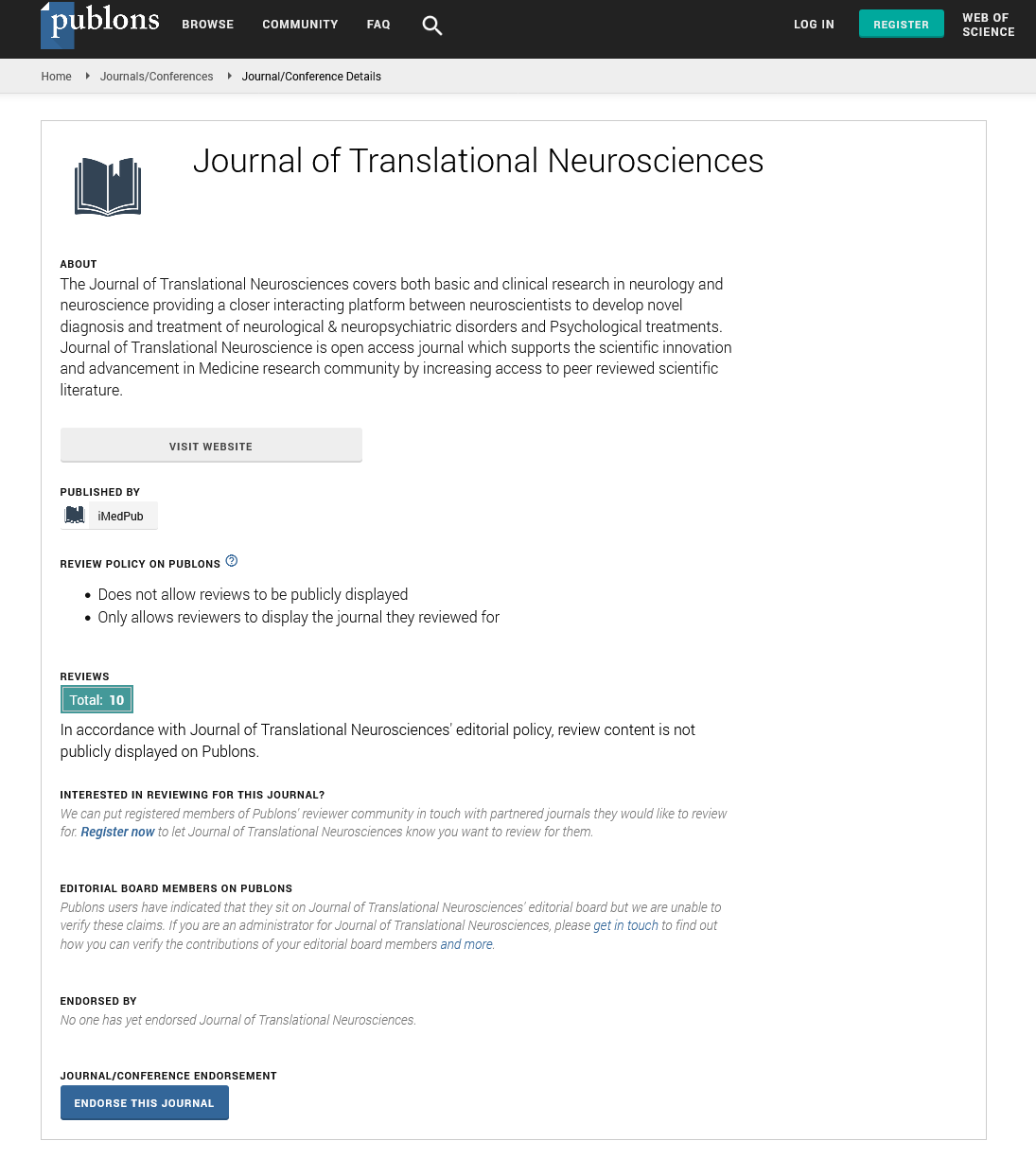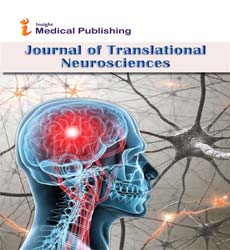Abstract
Role of TLR7/8 in the pathogenesis of ParkinsonâÃâ¬Ãâ¢s disease meant as Autoimmunity disorders
Neuroinflammation and autoimmune mechanisms have been recognized to have a key part in the pathogenesis of Parkinson’s disease (PD). Therefore, we evaluated the role of Toll-like receptors (TLRs) as a link between inflammation and autoimmunity in PD. We performed an in vivo model of PD, by 1-metil 4-fenil 1,2,3,6-tetraidro-piridina (MPTP) administration for 7 days, in single KO mice for TLR7, TLR 8 and TLR9; and in double KO mice for TLR 7/8-/-. All animals were compared with WT animals used as a control group. The result obtained demonstrated that the genetic absence of TLR 7 and 8 modified PD pathway increasing the immunoreactivity for TH and DAT compared to PD groups and decreasing microglia and astrocytes activation. Moreover, the deletion of TLR7 and TLR8 significantly reduced T-cell production in the substantia nigra and lymph nodes, suggesting a reduction of T cell activation. Therefore, our result highlights a possibility that an immunotherapy approach by using a dual antagonist of TLR 7 and 8, could be considered as a possible target to develop new therapies for Parkinson diseases.
Author(s):
Michela Campolo, Irene Paterniti, Alessia Filippone, Carmelo Biondo, Giuseppe Mancuso, Salvatore Cuzzocrea and Emanuela Esposito
Abstract | PDF
Share this

Google scholar citation report
Citations : 46
Journal of Translational Neurosciences received 46 citations as per google scholar report
Journal of Translational Neurosciences peer review process verified at publons
Abstracted/Indexed in
- Google Scholar
- JournalTOCs
- China National Knowledge Infrastructure (CNKI)
- Publons
- Secret Search Engine Labs
- Euro Pub
Open Access Journals
- Aquaculture & Veterinary Science
- Chemistry & Chemical Sciences
- Clinical Sciences
- Engineering
- General Science
- Genetics & Molecular Biology
- Health Care & Nursing
- Immunology & Microbiology
- Materials Science
- Mathematics & Physics
- Medical Sciences
- Neurology & Psychiatry
- Oncology & Cancer Science
- Pharmaceutical Sciences


